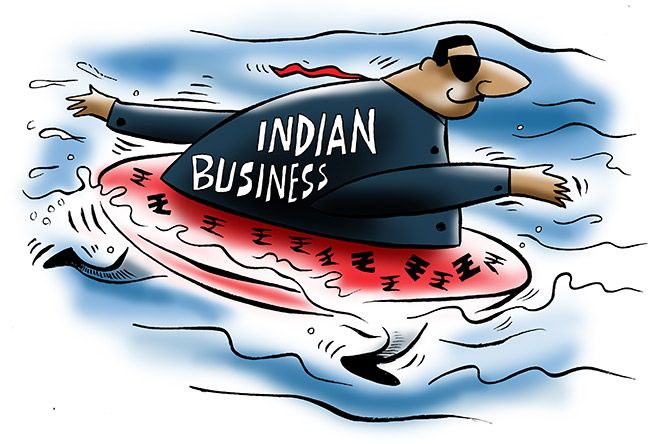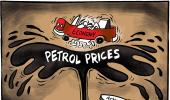After two years of a record low interest-rate regime, Indian corporate houses are experiencing a sharp and abrupt increase in funding costs.

With the Reserve Bank of India last month making an unequivocal turn towards policy tightening amid high inflation, firms looking to tap the capital markets for funds are ending up shelling out more.
The yield on the benchmark triple-A-rated corporate bonds maturing in three years has climbed 98 basis points (bps) since the policy rate hike in May.
It was last at 7.47 per cent, Bloomberg data showed.
The yields on triple-A rated paper maturing in 5 and 10 years have risen 79 bps and 59 bps, respectively.
The yield on the 5-year corporate bonds was last at 7.63 per cent, while that on 10-year securities was at 7.87%, it showed.
A significant portion of corporate borrowing is conducted in papers maturing in three-five years.
On May 4, the central bank surprised the markets by announcing a 40-bp repo rate hike.
This was followed by a 50-bp hike at the June policy meeting, taking the policy repo rate to 4.90 per cent.
The price action in the bond markets since the initial rate hike shows how funding costs have aligned with the shift in rates.
Yields on government securities -- the benchmark on which corporate borrowing is based -- have not risen in the same proportion.
This is because longer-term gilts had started pricing in higher interest rates well before the RBI swung into action.
The benchmark 10-year bond yield has risen 30 bps to 7.44 per cent since the May 4 rate hike, while that on the 5-year paper has hardened 44 bps to 7.26 per cent.
The spike in borrowing costs is starker when it comes to companies looking to raise shorter-term debt.
Rates on three-month commercial papers of non-banking financial companies and manufacturing companies have skyrocketed 125 basis points to 5.55 per cent, the data showed.
For banks seeking to raise funds through certificates of deposits, the rate for three-month papers has shot up 112 bps to 5.23 per cent.
Rates are still below pre-Covid levels but what makes matters tricky for the debt capital markets is that the reset has just begun.
“I think it’s about the cost of funding and not about the availability of funding.
"The funding cost has gone up, definitely, and that was expected,” Anil Gupta, vice-president and sector head-financial sector ratings, ICRA Ratings, told Business Standard.
“Bond issuances have declined. Typically, investors, when the rates are rising, adopt a wait-and-watch approach and deploy money when yields are decent enough for long-term investment.”
RBI Governor Shaktikanta Das recently said that the central bank is targeting a soft landing for the economy, but the jury is out as to how high the policy rates shall climb from the current levels.
According to Naveen Singh, ICICI Securities Primary Dealership’s head of trading, the overnight indexed swap market is currently reflecting expectations of the repo rate being raised to 7-7.25 per cent, but he warned that there are factors exogenous to the domestic rate cycle influencing swaps.
Anubhuti Sahay, Standard Chartered Bank’s head of economic research-South Asia, expects the repo rate to go up by another 110 bps to 6 per cent by the end of December 2022.
Whether the OIS market is accurate in its rate expectation or not, corporate borrowing costs are set to rise further – that, too, at a time when corporate working capital requirements have firmed up.
Moreover, with global central banks turning off the easy money tap, many firms, which had resorted to overseas borrowing, are returning to domestic funding sources, especially for refinancing.
“Corporations are expecting working capital requirements to stay at elevated levels and the borrowing rates are likely to go up further.
"Therefore, they are borrowing from one- to two-year segments, rather than only restricting to the CP market," said India Ratings and Research Director Soumyajit Niyogi.
“For large corporations with a good credit rating, rates are still benign, but going down the credit curve, rates have gone up quite substantially in the last couple of months.”
The sharp rise in interest rates in the financial markets has made companies turn to commercial banks for their borrowing requirements.
As a result, there has been a sharp uptick in bank credit growth, which was 13.1 per cent as on June 3, as compared to 5.7 per cent during the same period a year ago.












 © 2025
© 2025